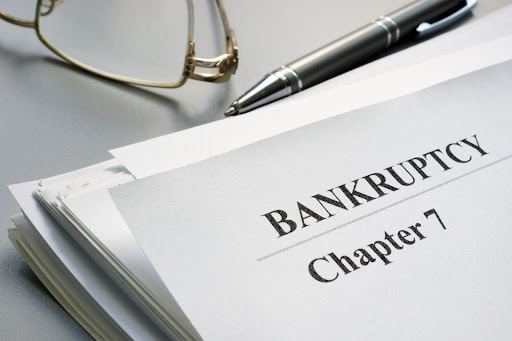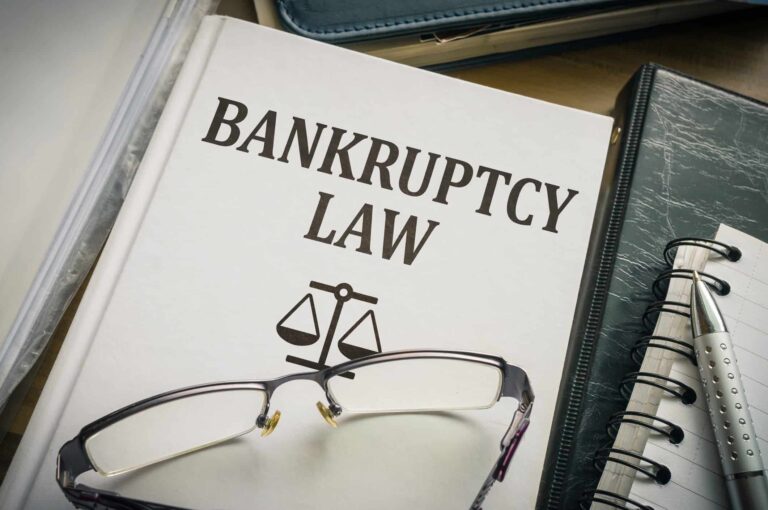Bankruptcy 101: Facts and FAQs
When you are struggling financially, it is a good idea to review some facts and concerns regarding bankruptcy and why it might be a good idea for you to consider filing. While bankruptcy is not for everyone, it could be the right choice for you.
To help you decide, review these interesting facts and FAQs about bankruptcy.
Are you unsure whether bankruptcy is right for you? Schedule a FREE consultation with one of our bankruptcy attorneys in Las Vegas today.
Facts About Bankruptcy
- Most people file for bankruptcy due to events out of their control. A common myth many people have is that bankruptcy is only for people that cannot manage their finances and overspend. However, most people file because of outside events, like medical bills, divorce, underemployment, and unemployment.
- Bankruptcy can help give you a fresh start. Unlike debt consolidation, most debts can be discharged, meaning you are no longer financially responsible for them. However, the extent of financial responsibility does depend on the type of bankruptcy filed.
- Bankruptcy can help improve your credit, but it takes time. In most cases, credit scores will decrease once bankruptcy is discharged. They can quickly recover within a year or so and start increasing once more. As long as you use any new credit responsibility, by the time the bankruptcy falls off your credit report, your score could be much higher than it was before you filed.
FAQs About Bankruptcy
What is bankruptcy?
- Bankruptcy is a legal proceeding that provides relief from most or all allowable dischargeable debts for people who are struggling financially to repay their debts.
What is Chapter 7 bankruptcy?
- Chapter 7 bankruptcy is the most common type filed by people. It allows them to seek relief from all of the dischargeable debts. However, they do need to meet certain qualifications to ensure the debts will be discharged.
What can I keep if I file Chapter 7?
- There are specific exemptions that allow you to keep some of your property, such as personal belongings, a vehicle, furniture, and other essentials. You can keep anything you need to maintain employment and have a place to live with basic furnishings.
How often is Chapter 7 denied?
- You might be surprised to learn that Chapter 7 bankruptcies are rarely denied a discharge. According to the U.S. Court’s website, more than 99 percent of Chapter 7 cases for individuals are discharged without any issues.
What is Chapter 13 bankruptcy?
- Chapter 13 bankruptcy is a reorganization of your current debts into a more manageable monthly payment plan. After making steady payments for three to five years, any remaining dischargeable debt is forgiven. This repayment plan must be approved by the court. The court can also make changes to the proposed plan or require an entirely new plan.
What can I keep if I file Chapter 13?
- Unlike Chapter 7, which has exemptions and non-exemptions, you get to keep everything, regardless of its value. However, you must make your monthly payments on time.
How often is Chapter 13 denied?
- According to the American Bankruptcy Institute, 40 to 70 percent of Chapter 13 bankruptcies are successful. The lower success rate compared to Chapter 7 often has to do with the commitment of the individual to make their monthly payments to the court-appointed trustee.
Can you file bankruptcy twice?
- You can file bankruptcy twice or multiple times. However, there are specific criteria you must satisfy in order to be able to file again. It is best to consult with a bankruptcy attorney to find out if you qualify.
Did you fall on hard times again, or are you struggling financially and need to file bankruptcy again? Find out if you qualify with a FREE consultation with one of our Las Vegas bankruptcy attorneys.
Does bankruptcy clear credit card debt?
- Yes, credit card debt is an allowable debt that can be included in Chapter 7 bankruptcy. It is fully dischargeable. However, if you file Chapter 13, you will continue to make payments. Any remaining credit card debt will be discharged at the end of your payment plan.
How does bankruptcy affect child support?
- Filing for bankruptcy does not stop child support payments from the noncustodial parent. However, you may request a child support review if monthly income will increase significantly after bankruptcy is discharged.
Can you file bankruptcy on student loans?
- In general, student loans are exempt from bankruptcy. However, according to the Federal Student Aid website, there are exceptions. If the repayment of student loans causes an undue hardship, you may be able to have them discharged in bankruptcy. As such, your bankruptcy attorney must file an adversary proceeding to request the court to consider discharging student loan debt.
Are Nevada bankruptcy court documents public?
- Yes, Nevada bankruptcy court documents are public records and accessible through the United States Bankruptcy Court District of Nevada website. However, these records are typically accessed by those who filed for bankruptcy, like when they need court copies of their discharge.
Do you have to go to court to declare bankruptcy?
- There will be specific times you will be required to go to court, like the required meeting of your creditors, called the 341 meeting. However, this meeting is usually not held in a courtroom and may be held virtually with you attending from your attorney’s office. In most cases, this will be the only required appearance.
Can your creditors still sue you after declaring bankruptcy?
- In rare situations, creditors may still attempt to sue you after you file for bankruptcy. They may believe the debt should not be discharged. Suing you, however, requires them to get permission from the bankruptcy court. In most cases, creditors will not typically attempt to sue you.
What is a bankruptcy trustee?
- A bankruptcy trustee is appointed by the court to oversee your bankruptcy proceeding. In Chapter 7 filings, they will determine whether you have any nonexempt assets and sell those to satisfy part of your debts. In Chapter 13 filings, the trustee works with you and your attorney to create the repayment plan. They are also responsible for distributing your monthly payments to your creditors.
What does discharge in a bankruptcy mean?
- This term refers to the court’s approval of your bankruptcy. Once you receive your discharge, you are no longer liable or legally accountable for any debts included in the discharge.
What is bankruptcy reaffirmation?
- Reaffirmation is a process used when you want to retain secured property, such as your house or vehicle. You and the creditor enter into an agreement to reaffirm that you will continue making regular monthly payments for the secured property.
Is reaffirmation necessary in bankruptcy?
- No, you can decide not to reaffirm secured debt during your bankruptcy. However, you will be required to surrender the property to the creditor, so they can sell it to help satisfy your debt.
Is there a set credit rating after declaring bankruptcy?
- No, there is no specific credit rating or score. While your discharge is pending, your credit score will often decrease. In Chapter 13 proceedings, some people may notice their scores increase because they continue to pay their creditors. Once your bankruptcy is discharged and reported to the credit bureaus, your credit score can decrease or increase. This depends on your rating and score before and during your bankruptcy.
How fast will my credit recover after discharge?
- Most people notice their credit will improve within the first year after discharge. You will start to get credit card offers, be approved for car financing, or even get a mortgage. However, the interest rate is often higher since you are still considered a credit risk. This risk gradually declines as the time between your discharge increases and eventually falls off your credit report.
What if I have more questions about bankruptcy?
While our bankruptcy facts and FAQs may have answered most of your questions, our Las Vegas bankruptcy attorneys understand that each person’s financial situation is different. It is entirely understandable you may have further questions about bankruptcy.
We would be happy to answer any additional questions you have, as well as help you determine whether bankruptcy is right for you. We invite you to schedule a FREE bankruptcy consultation with DeLuca & Associates today.
Sources:
Chapter 7 – Bankruptcy Basics.
Chapter 13 Success Rate Greater Than Credit Counseling Plans.
Discharge in Bankruptcy. (2022).










